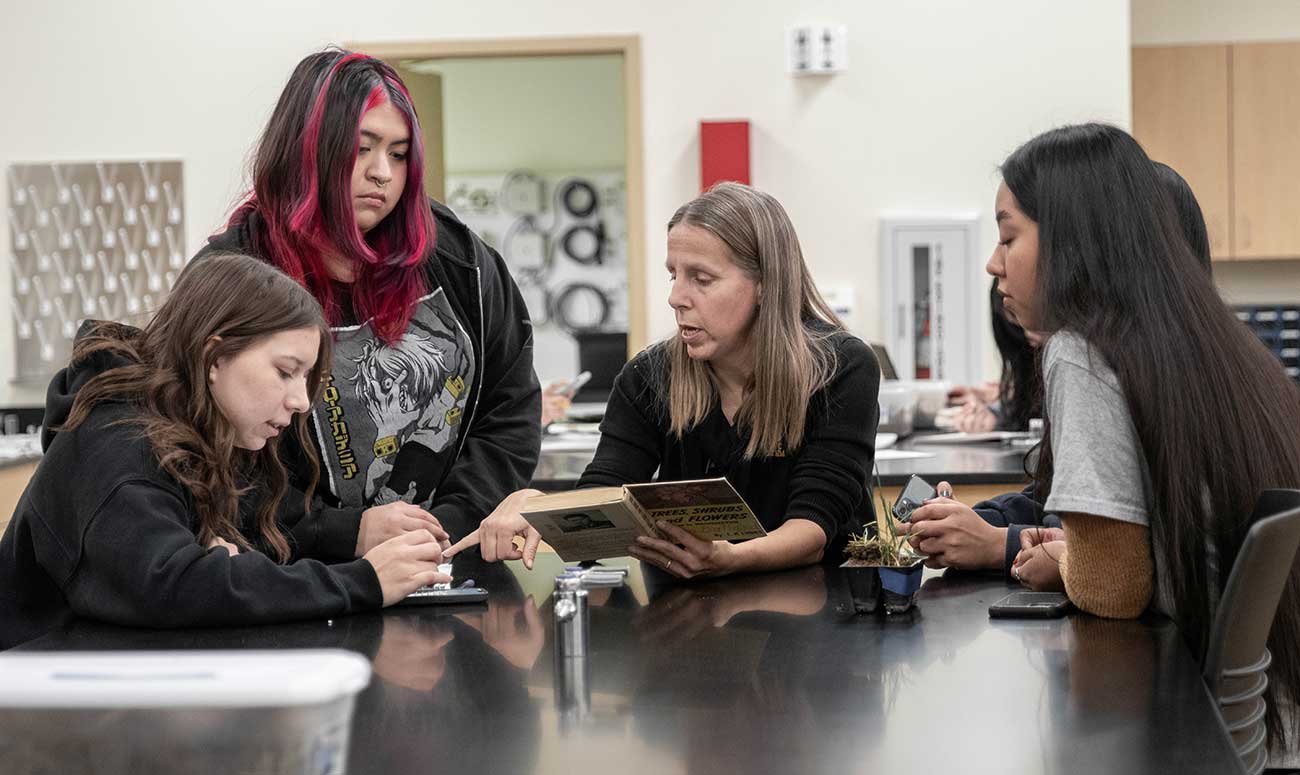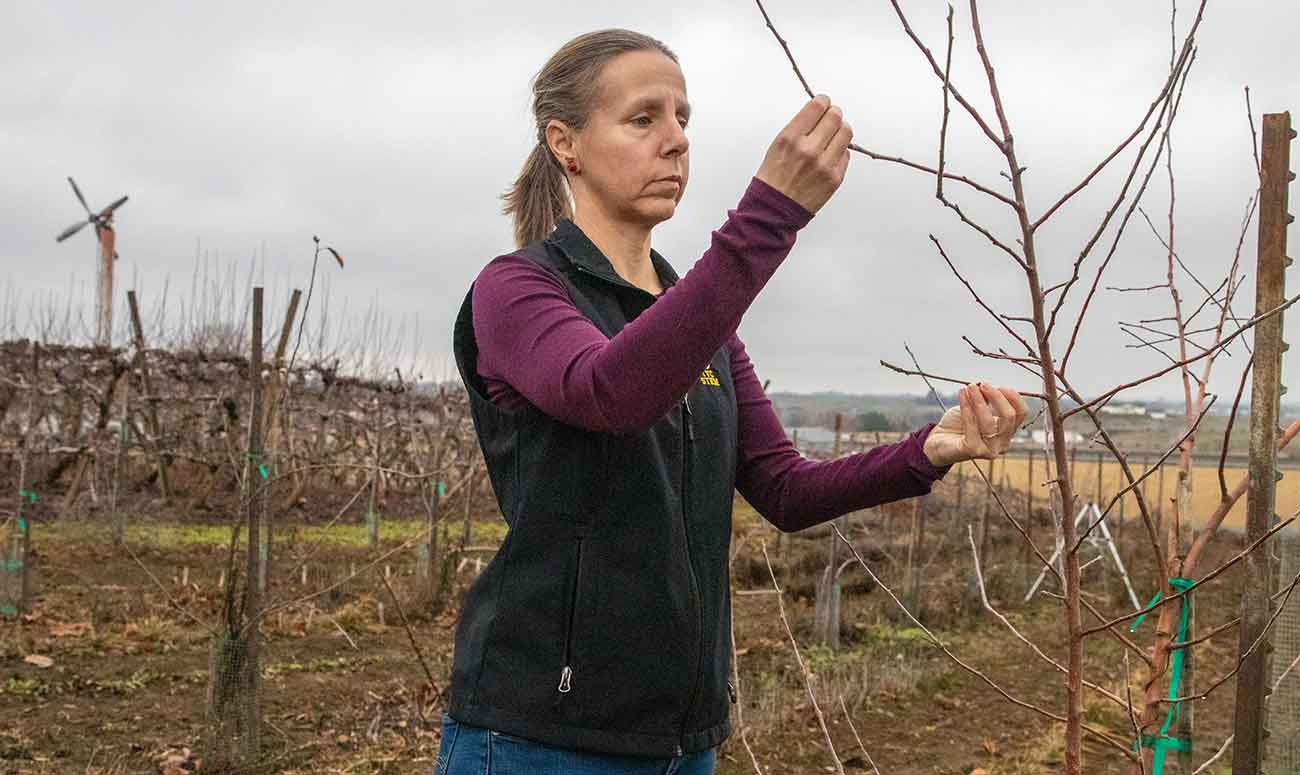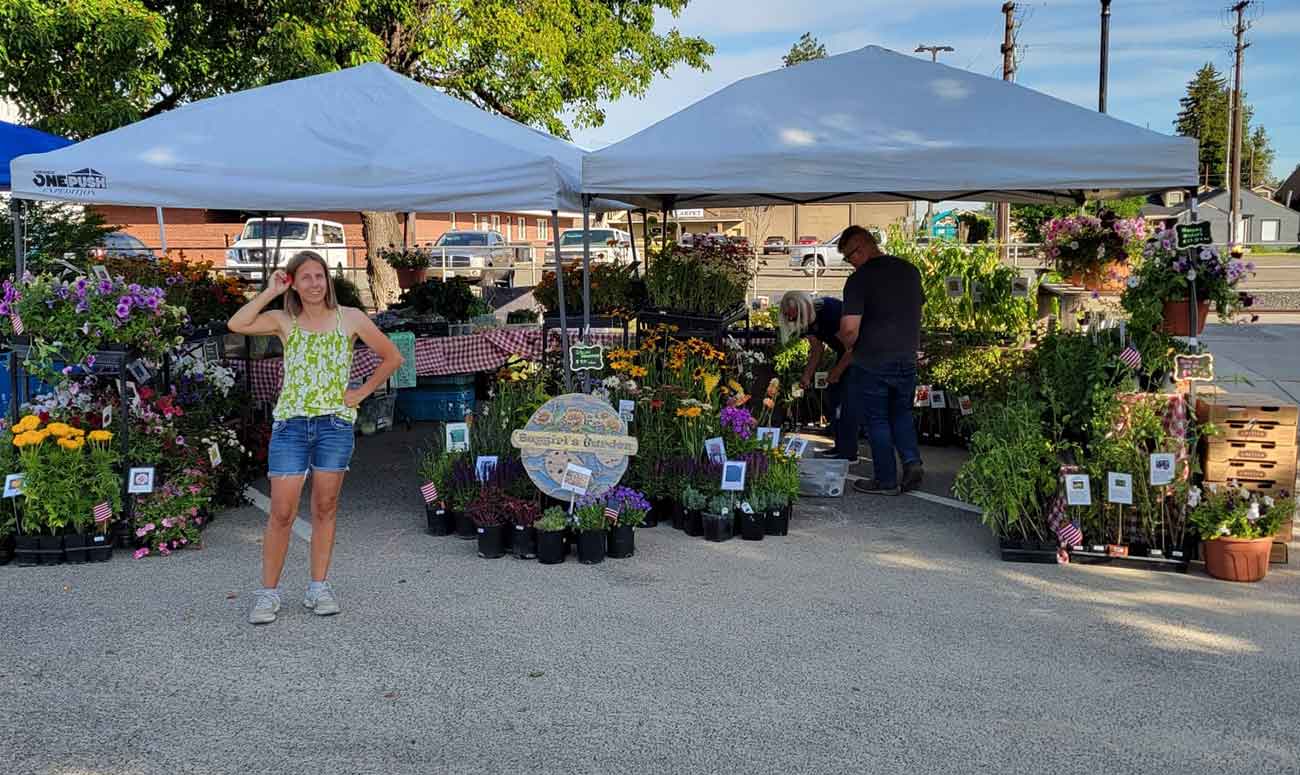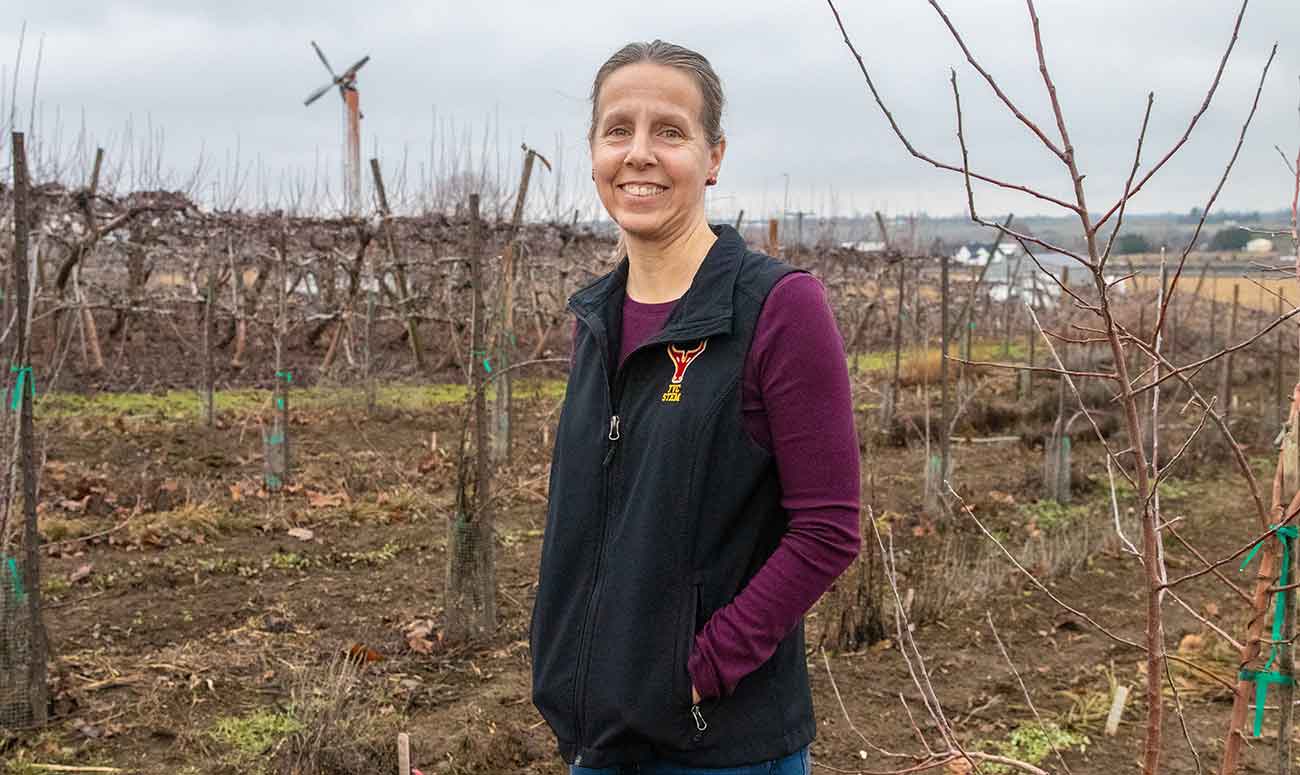Industry professional turned instructor propels agriculture program
“I grew up in the community and I come from agriculture people,” says Stacey Gingras. “My dad worked as a vineyard manager. I grew up in vineyards being a nature loving kid.”
When she was in kindergarten, the YVC instructor’s family moved to Prosser and planted a small orchard on their property. At the time her grandfather worked in the tree fruit industry with variety testing, ensuring that new varietals were suitable to be grown and marketed in Washington and the Pacific Northwest. Her family planted apples not yet common in the Yakima Valley, such as Gala from New Zealand and Fuji from Japan, and she spent countless hours doing chores around the orchard and participating in 4H and FFA.
During her childhood, Gingras also worked at a local floral shop where she learned to design floral arrangements. When the shop went out of business, Gingras saw an opportunity and Buggirl’s Garden was formed.
“Having these connections has been helpful in my teaching and for giving students a more enriched experience. The ag industry is really a lot about connections and collaborations.”
— Stacey Gingras, Instructor
“I began selling flowers from my mom’s garden and tree fruit from our orchard at the [Prosser] Farmer’s Market. The bouquets took off from there and soon my mom’s garden wasn’t enough to meet the demand. Our family purchased some property and started traveling to other farmers markets and grew a pretty good following.”
When Gingras graduated high school, she decided she wanted to get away from agriculture and pursue a career as a veterinarian. Gingras first attended Columbia Basin College then transferred to Washington State University Pullman where she earned a bachelor’s degree in zoology.
“I wasn’t really thinking about a career in agriculture,” she said. “I got toward the end of my degree and started weighing how many veterinarian jobs were available and how long the degree would take. I thought about the great teachers I had and decided that I could be one. I switched gears and focused my education on becoming a teacher.”
With an interest in entomology and jumping spiders in particular, Gingras chose to do her graduate work at the University of Texas at Arlington, where she found a faculty member doing research on those spiders.
Even as she worked to complete her master’s degree in general biology, Gingras knew she’d be returning to the Yakima Valley.
“I missed being involved in the farmers market,” she says. “To me so much of the agriculture industry is about connections. I even kept journals of ideas that I wanted to implement when I came back.”

After returning home, she was hired as an adjunct biology instructor at Yakima Valley College and Columbia Basin College. Eventually, YVC’s Agriculture Department approached Gingras about establishing and teaching an online integrated pest management class that is still being taught today, and five years ago she was hired into a full-time position.
She teaches biology for non-majors courses, along with 100 and 200 level agriculture courses. This past winter quarter she taught a course centered on vegetable row crops and starting this spring she’ll teach a new course on the physiology of fruit development for YVC’s Bachelor of Applied Science in Agricultural Sciences program.
“Because I produce pretty much all of these [crops] on my farm, I have direct access to showing my students how to cultivate those and the industry surrounding them.”
With roots that run deep in the community, Gingras uses her network to help enhance student learning.
“I know lots of people doing the large-scale farming in our area,” says Gingras. “Having these connections has been helpful in my teaching and for giving students a more enriched experience. The ag industry is really a lot about connections and collaborations.”

Building opportunities for students
Christina Kemner, who took an entomology course with Gringas while working toward her degree in viticulture, was impressed with how she incorporated her vast knowledge into the classroom.
“It is nice to have someone who has worked for years and seen the changes occurring,” says Kemner. “I believe her wisdom and knowledge — along with patience — make her a wonderful instructor.”
As someone who prefers learning hands-on, Kemner feels Gingras’ approach helped her learn the material in a more engaging way, “having more interactive classes made the classes more fun.”
After completing her degree Kemner traveled to 12 countries and ultimately decided to live in South Africa for four years working in conservation.
“I helped raise and rehabilitate African Black Penguins along with other endangered seabirds at facility called SANCCOB [Southern African Foundation for the Conservation of Coastal Birds],” said Kemner. “The program was extremely hands-on. I made so many wonderful memories. I’ll continue to go back and spend time volunteering. It’s [cause] and people are very close to my heart.”
Returning to the U.S. Kemner was looking for an opportunity to get back to growing and found one at Buggirl’s Garden.
“Her farm has a wonderful variety of heirloom fruits and vegetables, and I wanted to expand my knowledge in orchards and row crops,” said Kemner. “Stacey is a wonderful instructor who is patient and kind. She has a great amount of knowledge and is constantly working on how to keep students interested not only in her class but learning in general.”
Currently pursuing a winery degree and wine sales certificate, Kemner is back in the classroom alongside Gingras, filled with enthusiasm for the learning journey ahead.
“It is nice to have someone who has worked for years and seen the changes occurring. I believe her wisdom and knowledge — along with patience — make her a wonderful instructor.”
— Christina Kemner, YVC alumna

Expanding the business
Buggirl’s Garden has steadily grown and added products since its creation. By year seven the company was a three-way split between cut flowers, produce and nursery starts. Today the business includes eight acres in production — the five acres in Prosser, worked by primarily by Gingras’ parents, where tree fruit, nursery plants, cut flowers and some vegetables are grown, and her three acres in Benton City, site of most of the farm’s vegetable production along with table grapes and a flock of egg hens.
This past year, the family decided to switch their business model from selling at farmers markets to a farm stand located in Benton City.
“It was very scary to move from something that was working well to something else,” Gingras said. “But we were able to really fill in the gap with new location customers. We’ve also been able to source produce to local restaurants.”
Despite her commitments in the classroom and on the farm, Gingras is still active in the industry and looks for ways to foster new connections for her students.
“I still attend industry meetings and that helps me make connections. Workforce Education programs are, by nature, always plugged into industry. We have advisory boards, so I still try to do that as much as possible. I’m also asking [industry professionals] for support and help with our programs. We have some great collaborators out there.”
Story by Stefanie Menard, AA-DTA ’05, communications consultant. Photos by Dustin Wunderlich, director of community relations, and Matthew Barton, graphic designer/multimedia content producer.
